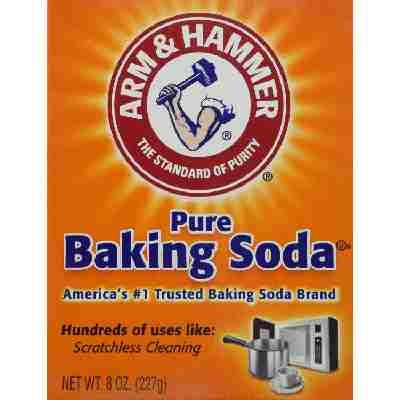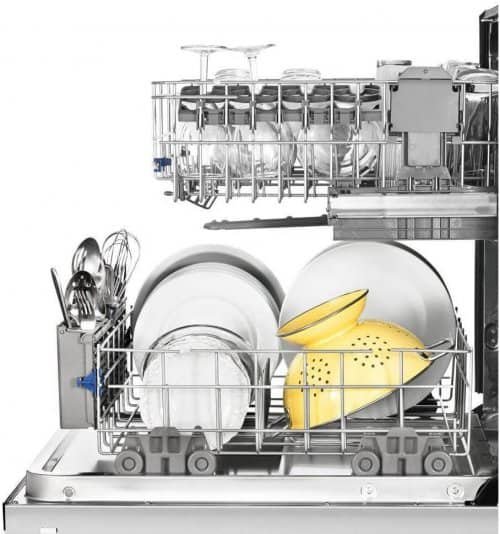If you’re looking for a convenient and efficient way to clean your dishes, a dishwasher is a lifesaver. However, what if you run out of dishwasher pods? Don’t worry! In this article, we’ll guide you through the process of using a dishwasher without pods. Whether you’re out of pods or prefer an alternative method, we’ve got you covered.
Table of Contents
Benefits of Using a Dishwasher
Before we delve into alternative methods, let’s briefly discuss the benefits of using a dishwasher. Using a dishwasher can save you time, energy, and water compared to handwashing. It also ensures more hygienic cleaning, eliminates the risk of breakage, and allows you to multitask while your dishes are being cleaned.
Alternative Dishwasher Detergents
When you don’t have dishwasher pods, there are several alternative dishwasher detergents you can use. These alternatives include liquid dish soap, vinegar, and baking soda.
Using Liquid Dish Soap
Liquid dish soap is a readily available alternative to dishwasher pods. To use it, simply add a few drops of liquid dish soap to the detergent compartment of your dishwasher. Be cautious not to use too much soap, as excessive suds can cause overflow. Run the dishwasher as you would with regular pods, and your dishes should come out clean.
Vinegar as a Dishwasher Cleaner
Vinegar is an excellent natural cleaner that can be used in many household tasks, including dishwasher cleaning. To use vinegar as a dishwasher cleaner, place a cup of white vinegar on the top rack of your dishwasher. Run a regular wash cycle, and the vinegar will help remove grease, odors, and stains from your dishes.

Baking Soda as a Natural Cleaning Agent
Baking soda is another versatile household item that can be used in place of dishwasher pods. Sprinkle a handful of baking soda on the bottom of your dishwasher before running a wash cycle. The baking soda will help break down food particles and remove unpleasant smells.

The Importance of Pre-Rinsing
When using alternative dishwasher detergents, it’s crucial to pre-rinse your dishes. Remove any large food particles or debris by rinsing your dishes under warm water before loading them into the dishwasher. Pre-rinsing helps ensure cleaner results, especially when you’re not using traditional dishwasher pods.
Proper Loading Techniques
To achieve optimal cleaning results without pods, it’s essential to load your dishwasher properly. Place larger items such as pots and pans on the bottom rack, facing downward. Cups, glasses, and smaller items should be placed on the top rack. Make sure not to overcrowd the dishwasher to allow water and detergent to circulate freely.
Choosing the Right Wash Cycle
Different dishwashers offer various wash cycle options. When not using pods, select a longer wash cycle with higher water temperatures for better cleaning results. The extended duration and increased heat will compensate for the absence of detergent pods.
Adjusting Water Temperature
Hot water is essential for effective dishwashing. Make sure your dishwasher is connected to a hot water supply to optimize the cleaning process. Adjust the water heater temperature if needed to ensure the water reaches at least 120°F (49°C) for thorough cleaning.
Adding Rinse Aid for Spotless Dishes
Rinse aid is a helpful addition to your dishwasher routine, even when not using pods. It aids in drying, reduces water spots, and ensures your dishes come out looking spotlessly clean. Add rinse aid to the designated compartment in your dishwasher, following the manufacturer’s instructions.
Cleaning the Dishwasher Regularly
To maintain the efficiency of your dishwasher, regular cleaning is necessary. Remove any food particles or debris from the filter, spray arms, and interior surfaces. Wipe down the door gasket and clean the exterior of the dishwasher as well. This ensures optimal performance and prevents any buildup that may affect cleaning results.

Troubleshooting Common Issues
Even without pods, you may encounter common dishwasher issues such as spotting, residue, or cloudy glassware. These issues can often be resolved by adjusting your loading technique, using rinse aid, or cleaning the dishwasher more thoroughly. Refer to the dishwasher’s manual for specific troubleshooting steps.
Environmental Considerations
When using alternative dishwasher detergents, it’s worth considering their environmental impact. Liquid dish soap, vinegar, and baking soda are generally eco-friendly options compared to traditional detergent pods. They reduce the use of chemicals and packaging waste, making them a greener choice for dishwashing.
Can I use regular hand soap instead of liquid dish soap?
It is not recommended to use regular hand soap in a dishwasher. Hand soap can create excessive suds, leading to overflowing and potential damage to your dishwasher.
Can I use lemon juice as an alternative to vinegar?
Yes, you can use lemon juice as a substitute for vinegar. It has similar acidic properties that help with cleaning and odor removal.
Can I use dishwasher salt without pods?
Dishwasher salt is primarily used to soften water and prevent limescale buildup. It is not a direct substitute for detergent pods and won’t provide the same cleaning effect.
Can I mix baking soda and vinegar for a more potent cleaning solution?
While baking soda and vinegar can be effective on their own, mixing them together creates a fizzy reaction that can neutralize their cleaning properties. It’s best to use them separately.
Can I wash delicate items without pods?
Yes, you can wash delicate items in a dishwasher without pods. Place them on the top rack and select a gentle or delicate cycle to minimize the risk of damage.
Conclusion
Running out of dishwasher pods doesn’t have to be a hassle. By following the alternative methods and tips mentioned in this article, you can still achieve clean and spotless dishes. Experiment with different options like liquid dish soap, vinegar, and baking soda to find the alternative that works best for you. Remember to adjust your loading technique, choose the right wash cycle, and maintain your dishwasher regularly for optimal results.

